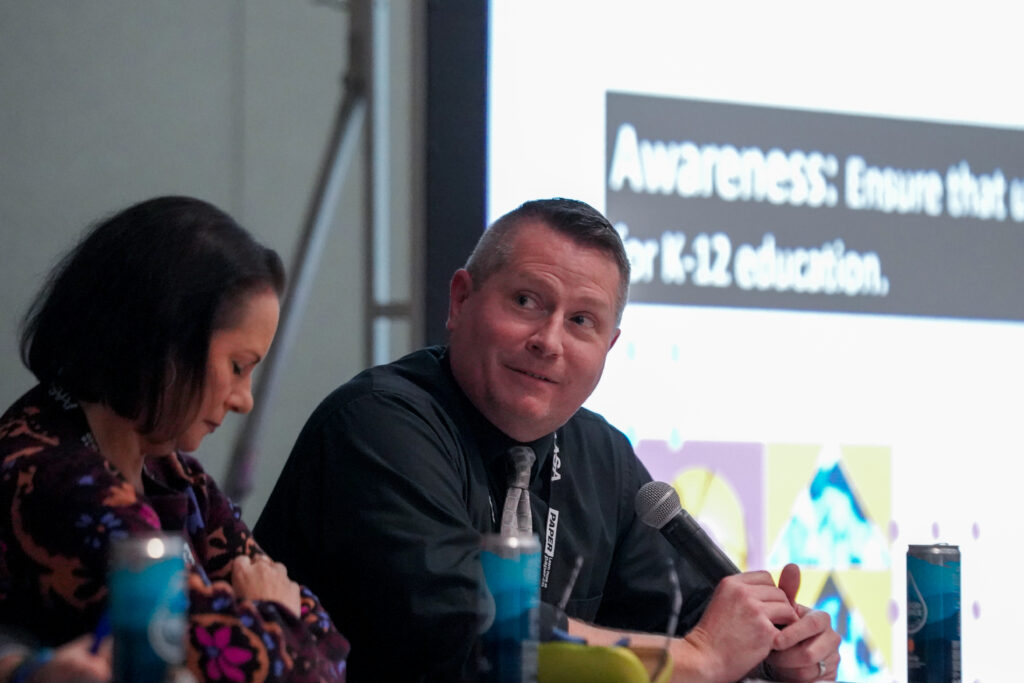Artificial intelligence has been a red-hot topic of interest at the 2024 AASA National Conference on Education as a standing-room-only crowd braved early wake-up calls to attend a Friday morning discussion on the technology.
Speakers at the “Chat GPT, AI, Oh My, What’s a Superintendent To Do” panel spoke about the challenges schools face in getting students, teachers and community members to understand a technology that is rapidly evolving and widely confounding.
“We’re in uncharted waters right now,” said Susan Enfield, recently departed superintendent of the Washoe County School District in Reno, Nev.
Enfield said discussions about AI are prevalent in education conferences she has attended and a large majority of educators in the room raised their hands when moderator Ann McMullan, a project director with the Consortium for School Networking, asked who had used or explored AI.
But awareness needs to be translated into understanding, especially for teachers who will be rolling out the technology in their classrooms.
Added Enfield: “This could be a truly transformative moment for teaching.”
Teachers are not going to be replaced by AI, but they could be replaced by other teachers who know how to use AI, said Glenn Robbins, superintendent of the Brigantine Public School District in New Jersey.
Enfield encouraged superintendents to make AI training fun and an experience.
“How do we just create more of those opportunities for staff?” she said. “Because that’s how we bring down the fear factor.”
Educators need to be aware that AI, like all new technologies, has limitations, but is improving daily. It will be up to educators to make sure students use AI ethically, and with the proper etiquette.
“Are they going to use it the right way?” Robbins said. “Are they going to do it responsibly? And once again, it goes back to us. We can either help them along the way or allow society to teach them all the wrong things.”
It’s important to keep parents informed about the use of AI. Matthew Friedman, superintendent of the Quakertown Community School District in Pennsylvania, said his district will launch monthly parent academies this fall addressing AI, in part, to dispel myths.
The conference panelists said professional help is available for educators. Resources, information and guidelines can be found at the Consortium for School Networking, an association for technology education leaders (www.cosn.org/AI).
Said Friedman: “You do not need to reinvent the wheel and feel like you’re on an island by yourself.”
(Luis Monteagudo Jr. is freelance journalist in San Diego and a reporter for Conference Daily Online.)

